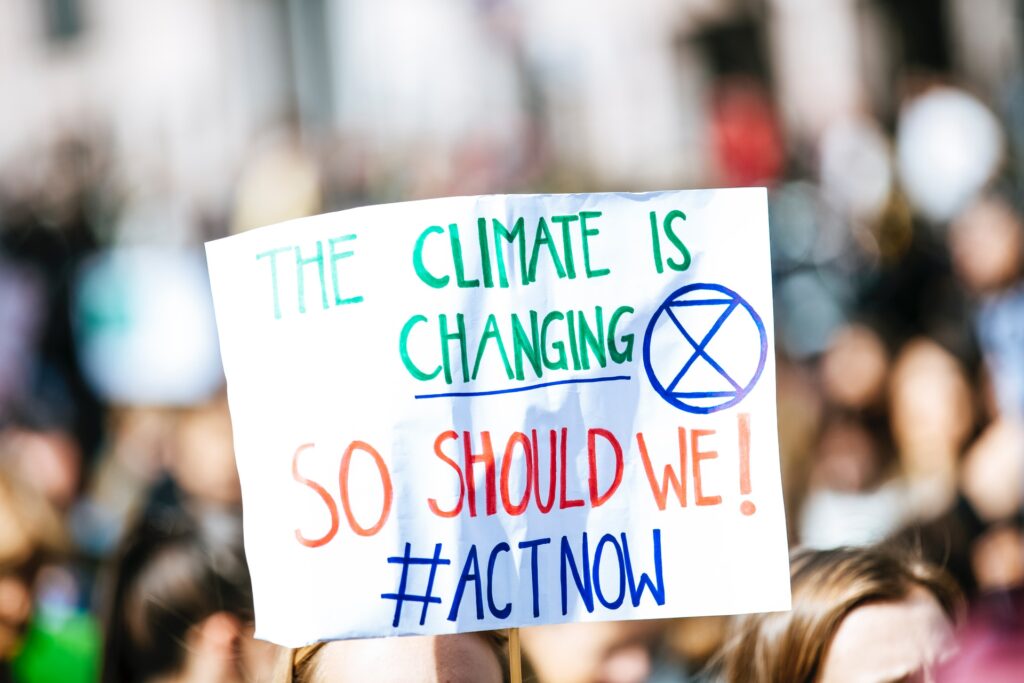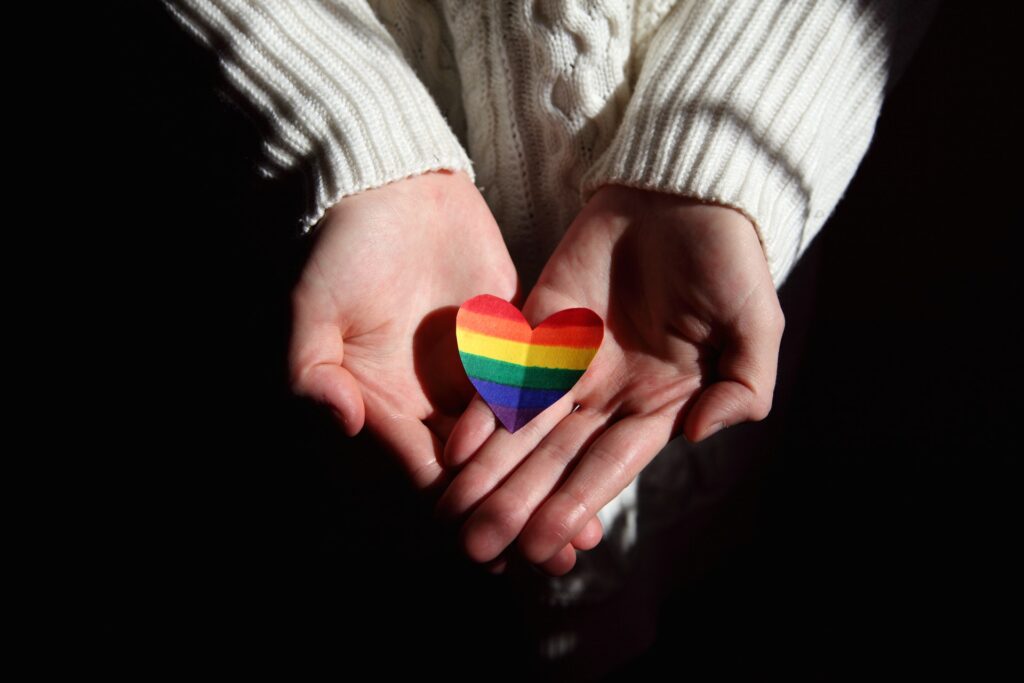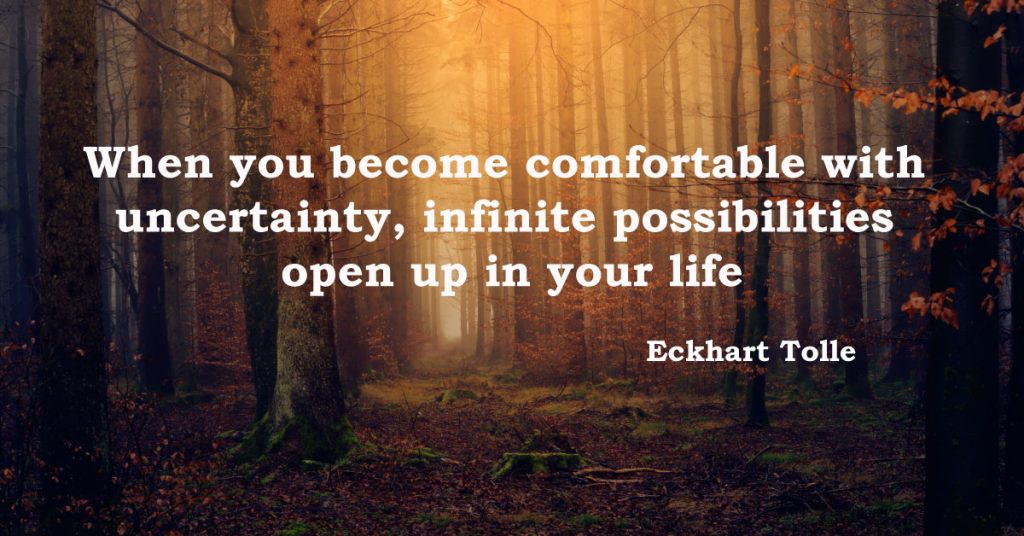As the Coronavirus pandemic continues unabated, and there is very little optimism out there that things will return to normal anytime soon, it is hard to be optimistic. People are anxious about the loss of life, money, freedom of movement and uncertainty. Also, more generally, what the true long-term cost will be to the economy and society.
A typical human response to uncertainty and the risk of loss is fear, and we will all be feeling this to a greater or lesser extent. Fear is a painful emotion and, for those that struggle to cope, can lead to negativity (e.g. glass half empty), panic attacks, depression and worse.
However, without seeking to diminish the severity of the challenges we face, I have been reflecting on some of the positive impacts that have or may yet flow from the crisis. Recognising that painful and seemingly unbearable experiences are often the greatest source of learning and personal development.
So, these are a few of the possible positive outcomes that have made it onto my list. I know the list isn’t definitive though!
Some positive outcomes from the crucible of hardship and heartache
- A crisis allows people to see things more clearly. Existential threats have a habit of changing our perception of what is important and to value life rather than taking it for granted. For many, they will have completely changed their outlook on life, recognising how fragile it is and how the control we thought we had is just an illusion.
- Collective Compassion. We have seen a groundswell of compassion in our communities that is wonderful to see. A widespread recognition that we are all connected even if we think we are not. The Thursday night clap for front line workers is an obvious example.
- Despite isolating families, it has paradoxically brought them closer together. Helping loved ones that are shielded with their shopping and day to day essentials. Calling them more regularly on the phone or video messaging to check they are okay and to help them beat the isolation. For those without family, there are neighbours and community volunteers ready to step in.
- For many, the crisis has offered unexpected relief from the excessive demands of modern life. A time to pause and reflect, re-charge batteries, exercise more, spend time in the garden, spend quality time with the kids, take up a new hobby and for some binge on online games and box sets! This is hard to admit when people are dying, but I am sure it resonates with many.
- We have been offered a stark example of how the way we live our lives impacts the planet. As the BBC reports “multiple sources indicate we are now living through an unrivalled drop in carbon output”. Carbon, of course, being cited as the principal contributor to global warming. But why is this? As Prof Gail Whiteman from Lancaster University, suggests, it is because, for the first time, leaders around the world have put healthcare before the economy.
The urgent need for change
I have been saying for many years to anyone who would care to listen that the human race is living on borrowed time; that there will be a huge price to pay for our excess and greed. We have:
- Failed to fulfil our obligations as guardians of the planet – melting ice caps, drought, pestilence, wildfires, deforestation on an unimaginable scale, animals pushed to the edge of extinction and beyond, depletion of fish stocks and the pollution of our oceans.
- Turned a blind eye to the manufacture of harmful products by having them made in someone else’s backyard, just so we can get the cheapest price possible – out of sight out of mind!
- We pursue technology claiming it will be good for us when in reality it is all about the money and to increase the wealth of the few. Just because we can do something doesn’t mean we should!
- We have become far more insular with an increasing focus on ‘me’, ‘mine’ and ‘I’. We worship material wealth and the pursuit of money above all else. Increasingly we see evidence of what happens when this warped sense of entitlement is challenged, with mindless violence, over-reactions and a complete lack of empathy and humility – an unwillingness to accept criticism of any sort, Black Friday scuffles, road rage, the list is endless.
- We have created the conditions that put the very fabric of our communities in peril – wars, knife crime, genocide, famine, poverty, increasing drug and alcohol addiction and now the Coronavirus crisis. All symptomatic of excess and the greed for wealth and power.
Potential long-term positives
So, what I am hoping, is that the coronavirus crisis will collectively force the human race to wake up and smell the coffee. As it touches all our lives, we cannot now turn a blind eye, simply because it is someone else’s back yard. We are forced to confront the truth, whether we want to or not. The crisis also creates opportunities whether we can see them or not.
“Never let a good crisis go to waste” Winston Churchill
I am therefore hoping that:
- The wellspring of empathy and compassion for others becomes part of the “new normal”. Collectively, we become more selfless and less selfish. People tend to have short memories, but I am hoping that the profound nature of this crisis will, at least for many, hardwire compassion, empathy and humility into their DNA; see it become part of our cultural norms.
- Those powerful few that are promoting and perpetuating war and violence around the world, are shamed into seeing the futility of their actions. Hopefully, a virus will do far more to resolve seemingly intractable conflict than any amount of gun and bombs has ever done!
- That globalisation becomes a force for good rather than evil. Instead of an opportunity to exploit the vulnerable, we use it to build shared values, whilst celebrating and promoting diversity. Coronavirus reminds us, starkly, that there this is more that unites us than divides us and only together will we solve the truly global challenges we face.
- As the Coronavirus crisis eases, we shift our focus from the plight of the human race to the plight of the planet. We must use our newfound compassion to address the needs of the planet as well – invest in new technology that will address climate change, alter our buying habits to protect the environment, offer support to emerging economies to help them shift from harmful activities like poaching and deforestation, educate the next generation so they become a force for good and recognise that as we as humans are connected so we are also connected to all living creatures and the planet itself.

The profound risks that are faced around the world have not gone away. They are just not frontpage news at the moment. It is vital, therefore, that we remain committed to tackling these issues at the same time as Coronavirus. Now is the time for great leadership. Leadership that treats the underlying causes of the challenges that are faced rather than simply treating the symptoms.
Perhaps I am being naïve or overly optimistic in expecting real change to occur when people continue to behave irresponsibly despite the challenges we face? Someone recently suggested to me that the world is not yet ready to face the economic impact of doing the right thing and perhaps they are right. I suspect that the human race is also not yet ready to address the burgeoning sense of entitlement. However, I fear that Coronavirus is just a taste of what is to come if we don’t act now.
If nothing else, I hope that there is an increased awareness of the scale of the global challenges that we face. The simple recognition that change is needed creates the fertile ground that will allow change to happen. Ignorance is definitely not bliss!
4 Comments
Add comment Cancel reply
This site uses Akismet to reduce spam. Learn how your comment data is processed.



Brilliant. Love your words,focus and hopes for the future.
Thank you so much. I remain optimistic!
Excellent. Very grounding and relevant.
Thanks for the kind comments and I’m glad you enjoyed the read.